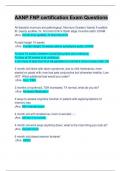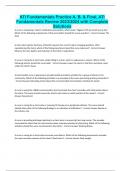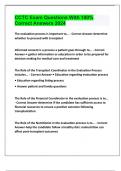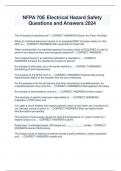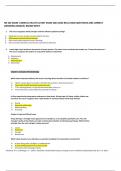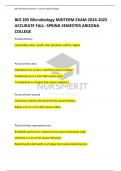Essay
Nursing essay: Health inequality - the impact of income inequality on mental health outcomes
- Module
- Nursing
- Institution
- University Of The Highlands And Islands (UHI)
Assignment type: Essay Grade awarded: A Level 7 Referencing style: Harvard Number of pages: 7 The present essay provides an overview of health inequalities outlining their principle causes. Its primary focus is the impact of income inequality on mental health.
[Show more]




